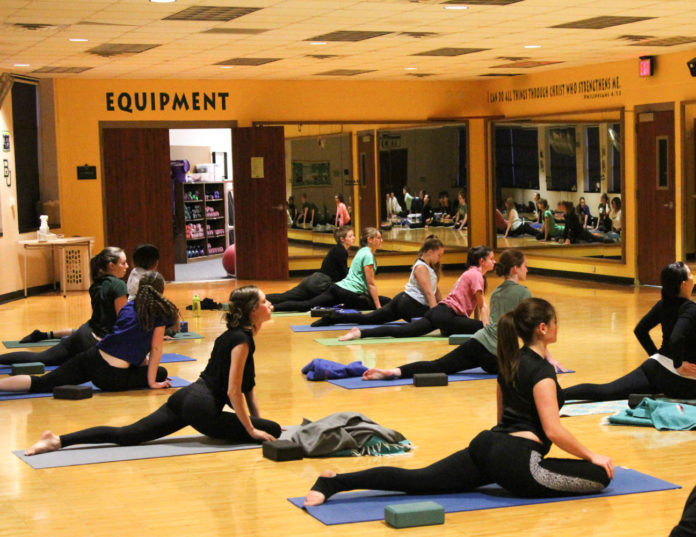By Thomas Moran | Staff Writer
In recent years, yoga has become one of the most popular and widely practiced forms of physical fitness in the western world. Yoga is commonly offered in gyms and, entire franchises have been established in the name of yoga and its practice.
More recently, a debate has arisen in online forums and Christian publications: should practicing Christians participate in yoga, considering its religious roots in Hinduism?
Some feel that the practice of yoga cannot be separated from its close ties to Hindu worship and that to partake in yoga is to partake in those ancient rituals.
The official website of the government of India’s Ministry of External Affairs (MEA) offers a detailed history and explanation of yoga.
The site explains that the word “yoga” is derived from the sanskrit word “yuj,” which means to unite in reference to the mind and the body.
Supporting the claim that yoga is inherently linked to Hinduism, some yogic lore suggests that Shiva, one of the more predominant Hindu gods, was the first “yogi,” one who is masterful in the practice of yoga. In its early stages, the spiritual elements of yoga were given particular emphasis and yoga was used in many religious rituals, the MEA site said.
Today, 5,000 years since its beginning, the uses and emphases of yoga seem to have gained new meaning.
Forney junior Rachel Caldwell has practiced yoga for over two years and appreciates its physical and mental benefits. Caldwell has taken yoga classes with Baylor’s SLC, Yoga Pod in Waco and the gym in her hometown.
“Yoga really helps me with my self-esteem,” Caldwell said. “I have scoliosis. So I am unable to do other kinds of workouts. I can’t run. I can’t lift weights or anything like that. So yoga really helps me to feel strong and healthy and helps me gain control over my mind.”
Mindfulness, centeredness, kindness, and community act as the foundation upon which most religions are established, and to avoid participation in yoga because of its religious background is ridiculous, Caldwell said.
“I am a Christian and I am easily able to separate my yoga practice from that,” Caldwell said.
Baylor alumna Lynne-Holly Wielenga is a yoga instructor at Yoga Pod in Waco and maintains a more holistic perspective of yoga and its benefits.
Though yoga has been utilized in Hinduism, the practice actually predates the religion, Wielenga said. For this reason, one can choose to reap any combination of the potential emotional, spiritual and physical benefits that yoga can offer, she said.
“What you focus on will really determine what you get out of it,” Wielenga said.
Offering a potential solution to the ethical dilemma, Yoga Pod offers a Christian-based Mind, Body and Grace class Friday evenings that has scripture integrated throughout, Wielenga said.
The matter of assessing and responding to this religious question ultimately falls upon the shoulders each individual, but people of every background are always welcomed into the yoga pod and international yoga community, Wielenga said.
“Anyone who practices yoga with involvement can reap its benefits, irrespective of one’s faith, ethnicity or culture,” the MEA site said.
As the debate develops, yoga classes continue to be offered through both lifetime fitness courses and wellness programs at the SLC.






